As part of Saudi Arabia’s denigrating campaign, anyone in the country, except for ousted President Abdrabbuh Mansur Hadi and his small group of protégés, have been unjustly portrayed as uncultured and underdeveloped individuals with little to contribute to their nation and the region.
Yemen's history over the past few centuries has been rife with recurrent struggles against colonialism. From their subjugation under the Ottomans and the British to disputes over control of their oil fields in the Al-Jawf Province, Yemenis have persistently fought for sovereignty over their ancestral land and its resources.
The most recent quest for Yemeni independence commenced in 2014, when citizens staged a popular uprising against the Saudi-supported government of Mansur Hadi. Eager to establish a self-governing state free from foreign influences, their efforts culminated in the creation of the Ansarullah Resistance Movement.
Subsequently, Saudi Arabia along with Bahrain, Qatar, Kuwait, UAE, Egypt, Jordan, Morocco, and Sudan launched an invasion on the country to bring back the unpopular government of Mansour Hadi. The coalition was largely backed by the U.S., as well as Israel.
When members of the Ansarullah movement were at the pinnacle of their fight against the Saudi-led invasion, they resembled a small militia group that had no air force or navy. Pictures captured of Yemeni military operations showed some of the Ansarullah movement’s fighters lacking the most basic equipment needed to win a military conflict. Some of the fighters had to stand against barrages of fire barefoot, while some others were missing one or two limbs.
Nonetheless, Yemenis eventually managed to take control of their country's destiny. The Ansarullah movement now governs the capital Sana’a and large swathes of territory. Even though the war is technically not over yet, due to ongoing talks with the Saudi side, the people of Yemen feel like they have been offered a glimpse of autonomy, as their politicians can finally make decisions on their own for the first time in several decades.
It is, however, important to note that Yemen had to pay a heavy price for its newfound freedom. The US-backed war on the country has resulted in the deaths of over 377,000 individuals, directly and indirectly through malnutrition and illness—children account for 70 percent of these fatalities. The UN has consistently raised alarm, characterizing the country's plight as one of the gravest humanitarian crises in contemporary history.
As Ansarullah consolidates its power in Yemen, Western-backed media and individuals have begun to cast doubt on whether the 2014 revolution in the Arab nation will bear the fruits of the hardships that were endured. But recent developments in the region have reaffirmed for Yemenis that their efforts to reclaim control of their nation were the right decision.
As the West streams its financial and logistical support into Israel and Arab states stay maddeningly impotent in the face of the regime’s crimes in Gaza, Yemen has emerged as the sole Arab force, alongside Lebanon’s Hezbollah, that has come to the Palestinians’ rescue.
Yemen began its support for Gaza by targeting positions inside the occupied territories. Many around the globe might have anticipated such a move by Sana’a. Yemen’s next move, however, deeply stunned the world. The country began targeting Israeli ships in the Red Sea—one of the most crucial transit routes in the global economy. Yemen has seized one Israeli ship and attacked three others, vowing to continue targeting Israeli seacraft until the regime ceases its genocidal assaults on the besieged Gaza Strip.
The unwavering confidence and determination of Yemeni soldiers have arguably been the most remarkable aspect of their operations. While reports indicate that Yemen’s armed groups used sophisticated ballistic missiles and drones to target Israeli vessels, in the seizure of the Galaxy Leader Yemen demonstrated that facing the enemy successfully and dealing a heavy blow to its forces doesn't necessarily require the use of the most advanced weaponry. Through spectacular bravery and courage, Yemeni helicopter-borne troops took control of the vessel, challenging prevailing perceptions shaped by Hollywood-generated imagery. Western countries and Israel have so far only made empty threats, not daring to engage in a new fight with Yemen.
The operation took place as several Arab states in the region, who have spent billions of dollars on Western-made weapons in the past decades, have not yet mustered up the courage to fire a single shot at Israeli positions.
This event showcased local countries' ability to defend themselves even amid challenging circumstances. It showed that what truly matters is the willingness and courage to do what is right, and not the amount of money you’ve collected from oil sale.
In retaliation for these actions, Israel utilized its influence to halt the distribution of UN-funded food in Yemen, a nation where millions are still in need of assistance due to the Saudi-led war. The World Food Program (WFP) announced the suspension of food distribution in northern Yemen "due to a dip in funding" on Tuesday.
Despite international pressure to once again stop Yemenis in their pursuit of freedom, it is unlikely that people in the historic Arab country would stop waving Palestinian flags and cease their support towards their brothers and sisters in the occupied territories. After all, Yemen is one of the oldest centers of civilization. It would be naïve to believe the country would back down on its beliefs and values, without putting up a proper fight.
First published by Tehran Times



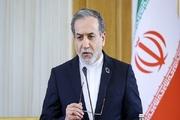
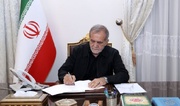
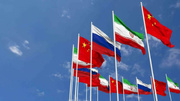
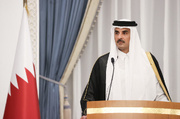

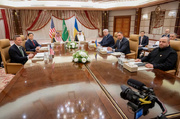
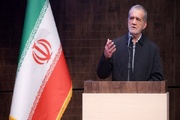

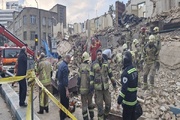
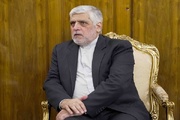
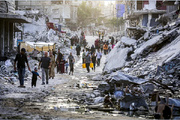

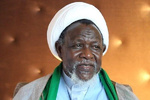
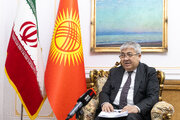
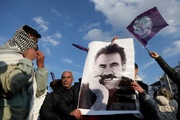
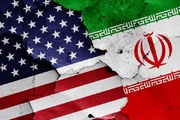
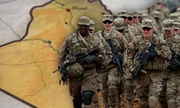

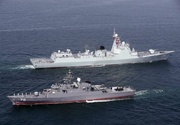


Your Comment